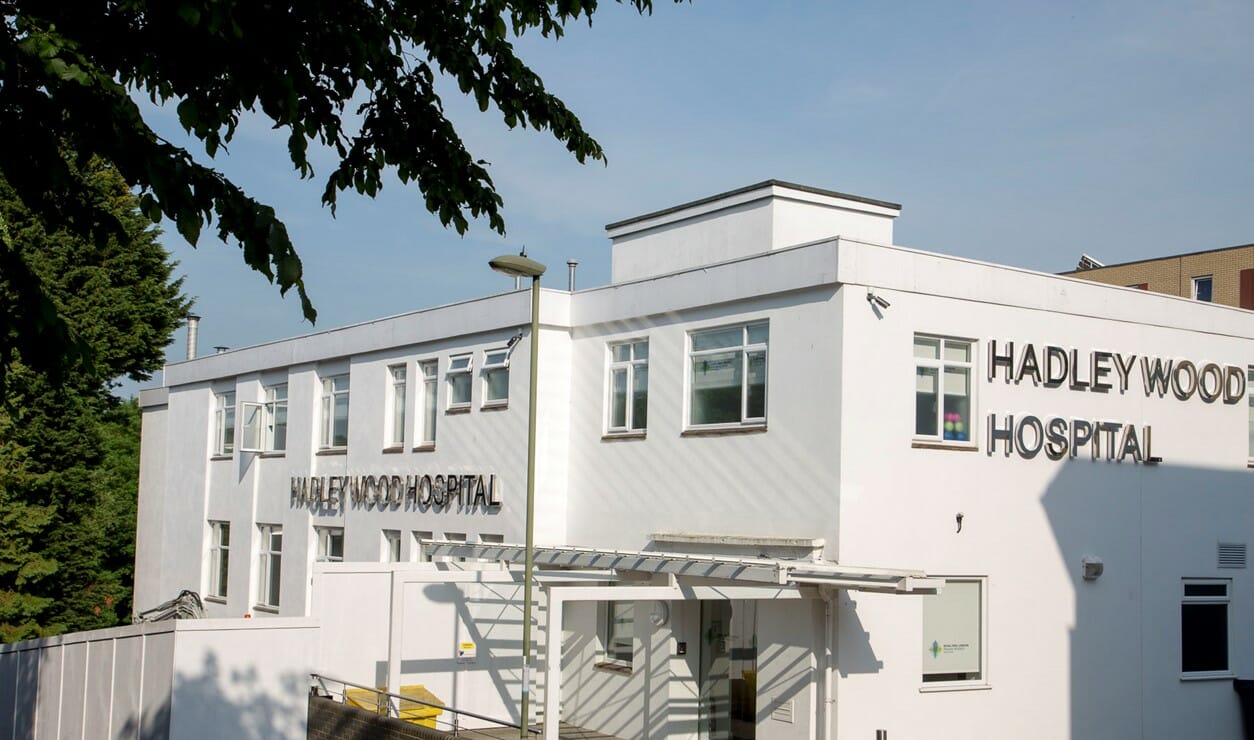Electrocardiogram / ECG

Our private Electrocardiogram / ECG services are provided at the Hadley Wood Hospital, High Barnet.
To find out more about our hospitals click here:
An electrocardiogram, or ECG, is a test that measures the heart’s rhythm and electrical activity.
When an electrocardiogram is used?
Electrical signals are what regulates your heart beat and keeps it pumping correctly – but these electrical signals can become disordered for a range of reasons. Some of these are benign and completely harmless (although they may still result in symptoms, such as palpitations), while others can indicate a serious underlying condition that may require further investigations, monitoring and treatment.
Conditions that can be detected by an ECG include heart rhythm disorders (arrhythmias) such as atrial fibrillation and supraventricular tachycardia, heart disease and cardiomyopathy (thickening of the heart walls). An ECG can also detect signs of heart attack. They are usually one of the first tests performed for people experiencing symptoms such as palpitations, breathlessness, chest pain and dizziness.
How is an ECG carried out?
The procedure is carried out on an outpatient basis. You may be asked to change into a hospital gown before lying on a bed. The specialist will attach electrodes (small sensors attached to sticky patches) to your arms, legs and chest (it’s sometimes necessary to shave the area first). These are connected via cables to the ECG machine, which will measure and record your heart beat and the electrical activity in your heart while attached. ECGs don’t hurt and are very safe. The test usually takes a matter of minutes to complete. Afterwards, the electrodes will be gently removed and you’ll be able to get dressed and go home.
In some cases, ECGs can be performed while you’re walking or jogging on a running machine, to see how your heart responds to physical stress and exertion.
The findings will be closely assessed by a cardiologist and, if necessary, the results and any further investigations and treatment required will be discussed at a follow-up appointment.
24-hour tape monitoring / Holter monitoring
24-hour tape monitoring, also called Holter monitoring or an ambulatory electrocardiography (ECG), is a test to monitor your heart rate and heart rhythm over a 24-hour period.
Uses for Holter monitoring
For the test, you’ll need to attend the hospital to have the monitoring device fitted. This takes around 10 minutes and the nurse or specialist will explain everything you need to know about wearing the device. Electrodes (small sensors attached to sticky patches) will be applied to your chest. These will connect via a series of flexible cables to a small monitoring device which can be worn around the waist or in your pocket. This is very lightweight and discreet and once in place and activated, will operate automatically, taking readings at regular intervals. These will be automatically stored within the device, so you won’t need to do anything.
You’ll be asked to go about your day as normal, although you may be told to avoid very strenuous exercise which could affect the readings, and you will need to avoid getting the device wet. You’ll keep it on all day and night, including while you sleep.
After the device has been returned, the readings will be downloaded to produce a detailed 24-hour report of your heart rate and heart rhythm. This will be closely assessed by a cardiologist and, if required, any further investigations and treatments will be discussed during a follow-up appointment.
